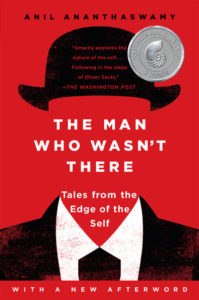Sixteen years ago, I remember sitting in a movie, not understanding even half of the dialogue. Of course, my family had been complaining about my hearing or lack thereof. But it was the movie that pushed me to have my hearing checked out.
I remember sitting in the sound-proof booth with headphones on listening for the faint sounds the audiologist sent my way. I was so thankful I could hear the faintest of the sounds. It came as a shock to me when I came out of the booth and the audiologist said, “Mr. Dunn, you have profound hearing loss.” What was a faint sound to me would have been a loud noise to others. I had deceived myself.
Over the years I have gone through two sets of hearing aids. On my birthday in 2014, I got a cochlear implant at Johns Hopkins in Baltimore. These devices are not perfect, but I was heading toward complete deafness.
Here’s the scary part. I found a recent article in JAMA that said, “Individuals with hearing loss had a 55% greater risk of developing dementia compared with those with normal hearing. Furthermore, the risk of dementia increased linearly with the severity of hearing loss.”
Friends are good for our mental health
I once spoke at an Alzheimer’s Association conference where I shared the program with a physician/researcher. He ended his lecture wanting to leave on an upbeat note. We can’t prevent Alzheimer’s, but we can reduce the risk. He then listed three things we can do to reduce the risk of dementia. He said:
- Walk one-half hour every day.
- Fight depression at all costs.
- Have two or three close friends.
Last year, I saw a story on the NBC Nightly News with another list, this time from Rudolph Tanzi, a professor of neurology at Harvard University and the director of neurology at Massachusetts General Hospital. He suggests an approach he calls SHIELD, an acronym for lifestyle factors that appear to help reduce the risk of developing Alzheimer’s. They include:
- Developing good sleep habits
- Getting a handle on stress
- Interacting with friends
- Exercising daily
- Learning new skills
- Eating a healthy diet
Those pesky friends show up again. How do friends help prevent me from losing my mind?
The brain continues to change and friends can help
I got a clue about the friends piece in a recent podcast from Brené Brown with David Eagleman on his book Livewired: The Inside Story of the Ever-Changing Brain. Eagleman is a neuroscientist who is curious about the brain — how it is mysterious, malleable, constantly changing, and up for new challenges. He believes that our brains are “malleable” because they can — and do — change in response to new situations.
Dr. Eagleman also endorses “learning new skills” from Dr. Tanzi’s list above. “Does malleability depend on us trying new things?” he asks. “If you are challenging yourself, you are building new roadways.” He suggests learning new skills from learning a foreign language to brushing your teeth with your other hand.
Where do the friends come in? “Other people is the hardest thing that brains deal with,” he continues. “The degree to which one can maintain an active social life is massively important.” Carrying on a conversation requires that I pay attention. I never really know what the other person is going to say. I build those new roadways in my brain in my response.
He goes on to say that “blind people are generally happier than deaf people because they can communicate.” And this interaction can help ward off dementia.
Social distancing and friendships
So, I’ve adapted. Bluetooth sends the TV audio directly to my brain through the cochlear implant. Headphones make phone calls and Zoom meetings very workable. The most difficult situations are social settings — a crowded party with lively chatter all around or a noisy restaurant. These are exactly the places in non-COVID times where I might meet those friends who are so important to my mental health.

I plan ahead. No more Mr. Nice Guy, “You sit down first, and I’ll just take what is left.” I take the seat at a table where I will be more likely to hear others. I’ll tell people, “I can hear better if I am in this seat” and not have a hint of embarrassment.
Social, or physical, distancing is hard on friendships. I tend to be an introvert who has not developed friendship patterns with a lot of talking and visiting. This year has made me more acutely aware of this missing piece. Turns out my future mental health depends on it.

 “Consider the phrases used [in the vast medical literature] to describe Alzheimer’s impact: ‘a steady erosion of selfhood,’ ‘unbecoming’ a self, ‘drifting towards the threshold of unbeing,’ and even ‘the complete loss of self.’” I got that sentence from a new book by Anil Ananthaswamy,
“Consider the phrases used [in the vast medical literature] to describe Alzheimer’s impact: ‘a steady erosion of selfhood,’ ‘unbecoming’ a self, ‘drifting towards the threshold of unbeing,’ and even ‘the complete loss of self.’” I got that sentence from a new book by Anil Ananthaswamy, 